Avoiding networking events can be tempting, especially if you aren’t sure how to approach people or what to say once you start the conversation. What’s more—many veterans have challenges in networking—simply because the need to promote themselves is counterintuitive to their entire military career.
However, like all things related to business, it’s important to remember that the most successful networkers are the ones who are willing to put in the work, even when they don’t see an immediate return on their investment. As a quick primer, here are five common networking mistakes you may be making and how to avoid them so you can take your business success to the next level.
Mistake #1. You Turn Down a Chance to Meet Someone
This may seem like an obvious point, but you’d be surprised at how many people don’t really want to meet new people. Unfortunately, the likelihood of you being able to grow a network where you don’t meet people is pretty slim. So don’t turn down the opportunity to meet someone for coffee, or even just to jump on a virtual event for an hour during the day. You’re likely to meet someone new even with minimal effort.
Also, keep in mind that your current network is already ripe for scheduling a quick meet up. There’s likely a connection that you could learn more about, or even be a help to.
Mistake #2. You Don’t Follow Up
If you’re meeting people without pursuing a mutually-beneficial relationship, then you’re just learning how to shake hands. So take a minute and follow up with some of the connections you made. Invite someone for coffee to learn more about what they do. You never know when someone you’ve never met may see value in helping you out down the road, but they might not know how to help or what to do, so it’s up to you to make things easier for them by following up after an event.
There are a lot of different ways of doing so, but we recommend starting with a social network that connects people in your industry. LinkedIn is widely used and great at reminding people about events they attended or projects they worked on together—and offers great ways to re-connect about follow-up discussions.
Mistake #3. Your Online Presence Needs Work
Social media can help you build a robust network of connections to help support your career goals and serve as valuable sources of career-building opportunities. However, all too often, veterans (and civilians) focus on posting job openings and vague status updates, which makes them appear disinterested or difficult to reach. Instead, be specific about what you need in a job or how you’re trying to find one. Or, offer information that will help others connect with you — it might be additional professional skills that are useful, or an area where they can share relevant contacts and resources.
Above all, make sure your profile is current and engages conversation. From a recent photo to what your current position is (even if you’re looking for a job!), these things help provide a “snapshot” to you and what you’re looking for, and will help people to better connect with you.
Mistake #4. You Don’t Add Value
Your primary goal in any conversation is to add value and reciprocate, not to pitch your services or why you need a job. Most people like helping others, so focus on finding ways you can add value to your conversations. Listen more than you talk and really get to know those around you—then offer help when they ask for it!
For example, if you attend a conference or meet with a new client and notice they’re having trouble with social media marketing, jump in by offering some tips and tricks to help them better engage their audience. Social networks are about building relationships as much as anything else—so put yourself out there and find opportunities to put that networking advice into practice! If you genuinely help others, it will be easier for them to trust your expertise down the road.
Mistake #5. You Overdo it
If you’re in a networking group and you attend every event it throws, that’s not necessarily networking. You don’t have time to build relationships with people when you attend too many events—you simply connect with a new group of acquaintances each week. If you make it a point to limit how many events you attend, though—whether they are virtual or in-person—you’ll find yourself with more meaningful connections and more opportunities than if you were jumping from event to event.
Looking for more content like this? Join The Network and get access to more articles, resources, courses, events and a growing community of veterans, military spouses, and hiring companies!

